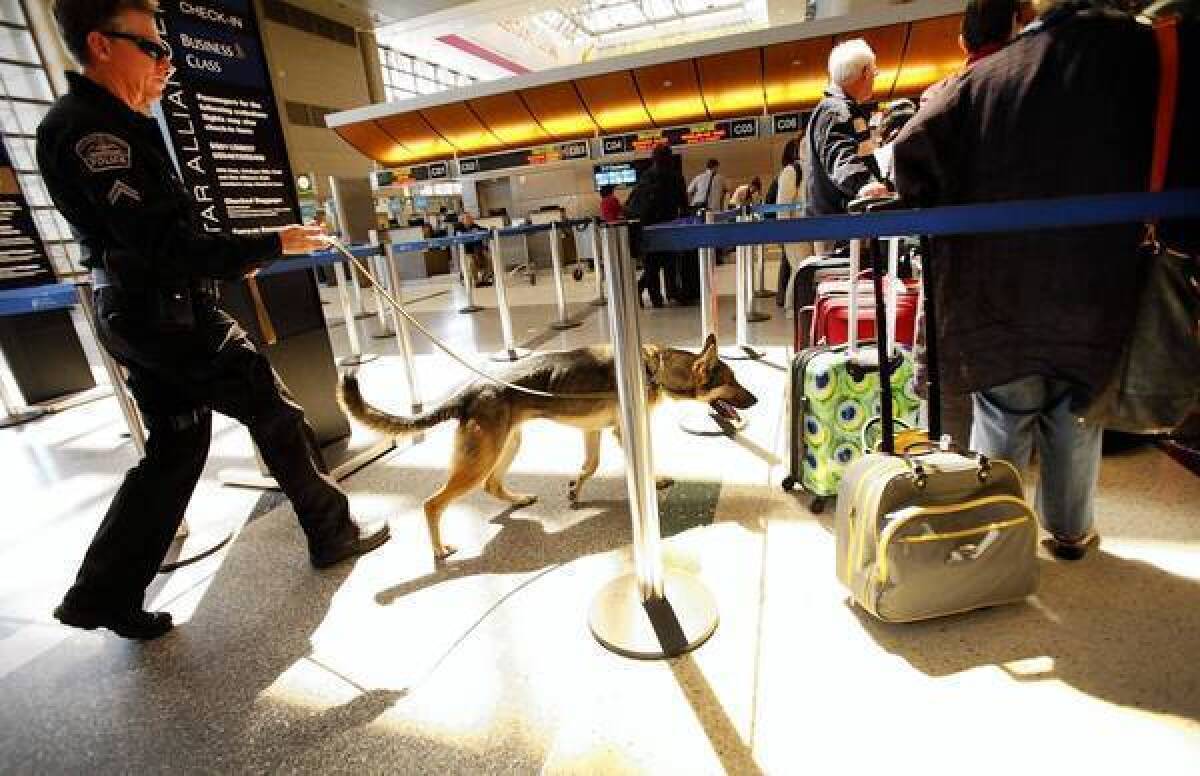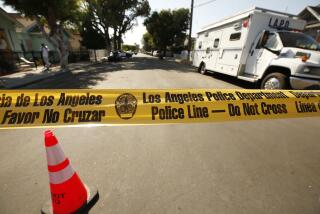LAPD chief says public plays an important role in security

- Share via
Los Angeles Police Department Chief Charlie Beck says the public plays an important role in security and that “your safety is your responsibility as well as mine.”
His blunt words came in response to Monday’s bomb attack in Boston, saying there is only so much police can do.
“In the city of Los Angeles this raises extreme concern. Obviously we are a city that loves its crowds, loves its sporting events, and the Los Angeles Police Department will take every effort to make those safe,” Beck said.
“But I want to remind the public of this: Police officers cannot be everywhere,” he continued. “We live in a very mobile, very free society. There are not enough cops to watch everything.... Your safety is your responsibility as well as it is mine.”
Large-scale outdoor events and venues present law enforcement with one of its greatest challenges, Beck and other security experts said. With thousands of people often spread over large areas, protest marches, road races, festivals and the like offer would-be attackers myriad opportunities to hide explosives among densely packed crowds.
Given the limitations of police, Beck implored the public repeatedly to report suspicious activity, saying that such cooperation “is the only way that we can prevent incidents like this from occurring. There is just too much space to watch and too few officers to do it.”
Beck and others were quick to emphasize that, despite the challenges, police are not helpless when it comes to securing events such as marathons.
When Los Angeles hosted its own marathon last month, for example, dogs trained in bomb detection were led on a sweep of the entire course before the race.
And before hundreds of thousands of people took to the streets of downtown L.A. several years ago for a massive immigration rally, the department spent months gathering intelligence on possible plans for violence and then deployed teams of undercover officers to blend in among the throngs.
“Unfortunately, it’s got to be a continuing effort, and that’s why it’s so important for the public to take their part,” Beck said. “We can keep things clean and pristine for an instant in time, but as soon as the crowds descend it is impossible to replicate that over and over again.”
Boston authorities said dogs and officers were used to check the marathon course before the race.
Police are also wise to use surveillance cameras and tighter security in the densely crowded areas of an event — such as the starting line of a race — that could make for the most appealing targets, said Henry Willis, director of the Homeland Security and Defense Center at the Rand Corp.
“There’s a double-edged sword when you have a public event like this,” he said. “Whenever a large number of people come together it creates a target for someone who wants to hurt people in a very public way. But at the same time law enforcement knows that, so we’re able to step up security.”
Police in L.A., as in other large cities, have committed significant resources to counter-terrorism efforts since the terror attacks of Sept. 11, 2001. A few hundred officers are assigned to the LAPD’s Counter-Terrorism and Special Operations Bureau, gathering intelligence and investigating possible suspects.
One unit within the bureau assists private security teams at specific locations as well as other possible high-value targets, such as the 72-story U.S. Bank Tower, to improve their defenses. Undercover officers in the unit have been known to try to breach a venue’s security in order to expose weak points.
Los Angeles has been a terrorist target before. Ahmed Ressam was sentenced to 37 years in federal prison for plotting to bomb Los Angeles International Airport in 2001. And in 2004, law enforcement officials said they believed Al Qaeda operatives had planned to hijack an airliner and crash it into the U.S. Bank Tower, then called the Library Tower, in a West Coast follow-up to the 9/11 attacks.
ALSO:
After Boston bombing, O.C. marathon mulls more security
Boston bombers are ‘monsters,’ L.A. City Council president says
Boston bombing shows vulnerabilities in public spaces, police say
joel.rubin@latimes.com
kim.murphy@latimes.com
andrew.blankstein@latimes.com
More to Read
Sign up for Essential California
The most important California stories and recommendations in your inbox every morning.
You may occasionally receive promotional content from the Los Angeles Times.














